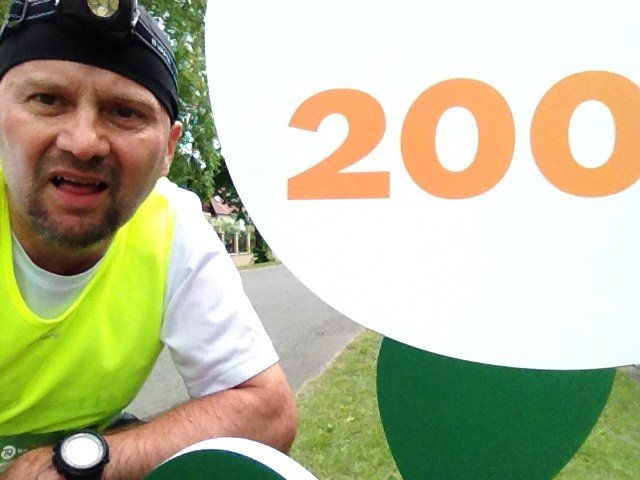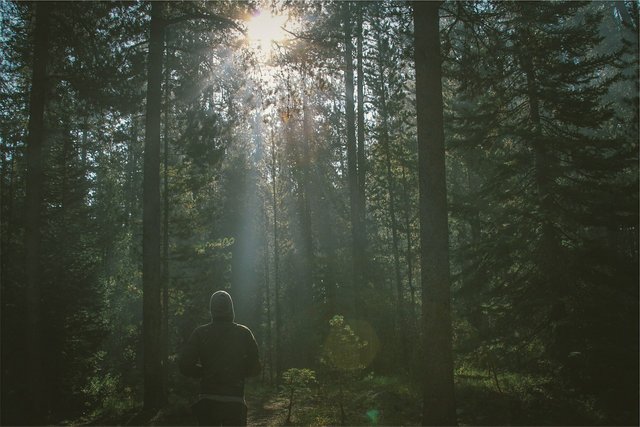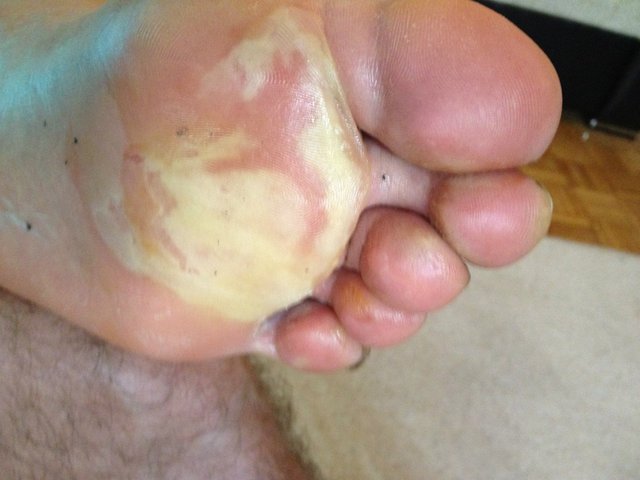It's Out There, But You Just Don't See It
It’s pitch dark, I’m running and I can barely see my own feet. The only sound I hear is my breathing. Heavy and fast, following the rhythm of my steps.
Between my soles and my shoes I feel blisters. Swollen, wet, torn apart, fist-size blisters. Every step is literally piercing my soles with pain.
At times, I hear around me sounds I cannot explain and when this happens, I run just a bit faster until it’s silent again. And I still can’t see my feet.
No, it’s not a nightmare. It’s my real life.
I’m running an ultramarathon around lake Balaton in Hungary, called Ultrabalaton. It’s just one lap around the lake, but the lap has 222 kilometers.
I started at 6 AM in the morning, and, last time I checked, it was around 11PM. During the last 17 hours I covered around 130 kilometers.
The Impossible Prediction
Since 9PM I’m running completely in the dark, because I don’t have a headlamp. My headlamp is in a drop-off bag, 6 km away, at the next checkpoint. I sent it there a day before, betting on the fact that I’ll be there at 9PM.
And that didn’t happen.
It was so hot during the day that I couldn’t maintain my projected speed. On top of that I also had blisters. Got dehydrated a few times and changed my nutrition plan twice.
To make it short, I’m almost 3 hours behind my planned schedule.
Every once in a while I get to run with a pack of runners who are wearing headlamps, but not for more than 3-4 minutes. Then it’s pitch dark again. I don’t see the road, I don’t see anything on the side of the road, it’s just a solid block of darkness surrounding me completely.
Sometimes I see a group of runners ahead, their headlamps moving like fireflies and I just take that swarm of fireflies as a point of reference, speeding up, trying to catch them. Without any other visual stimuli, this feels like floating at times. It’s weird. But, in a way, it’s also beautiful. Although scary, the feeling of not perceiving your own body is somehow relieving.
But that only happens when I get a relief from the pain in my soles. Which doesn’t happen very often, actually.
So I keep running.
I won’t stop.
I can’t stop.
I made 130 kilometers already and there are 6 more kilometers until the next checkpoint. That checkpoint will be my salvation. The headlamp is there and once I’ll have a headlamp, things will be better.
What Happens After The Finish Line
After another grueling half an hour I got to that checkpoint. I put on my headlamp, took care of my blisters as gently as I could and then started to run again.
I hit the 200km mark in the morning, at around 10 AM.

And then I finished the race at 1:30 PM, 31 hours and 30 minutes after the start.
I was one of the lucky finishers. Out of 150 runners lined up at the edition, only half of them made it. For Ultrabalaton, it’s actually a good percentage, sometimes there is only one quarter of the total runners that made it to the finish line.
It took me a few hours to be able to walk again and then a few weeks for my blisters to heal. Here’s a picture of my left sole 2 days after the event.
Fast forward a few months. I’m talking with my girlfriend about how I love running in the dark and how challenging this thing was during Ultrabalaton, and how torn I was between exhilaration and pain.
And then she asks me: “But you had your iPhone with you, didn’t you?”
And then it hit me.
Yes, I had the iPhone with me all the time, in a pocket in the back of my running pants. All the time. It was with me all the time.
But not even one second was I aware of the possibility to use it as a lantern.
The Unavoidable Narrowing Of The Attention Span
This is, basically, what happened to me. My attention span became so narrow, that I was simply blind to any other option. I had the light with me all the time, but I didn’t use it.
It was there all the time, as the title of the article says, but I couldn’t see it.
Whenever you encounter some serious stress, your attention span narrows dramatically. And I’m not talking only about bad stress, like pain. This happens also when you’re high on your own endorphins. Remember when you were so happy making it to the top of that mountain that you didn’t even realize that you cut your hand in a bush?
That’s because stress is always narrowing our attention span. It creates a vortex of focus from which we can hardly escape (there are ways, and I’m gonna mention them at the end of this post, though).
When we’re under the spell of this narrowing, we have no idea about the actual situation. We think we’re doing everything we can, but in fact we’re not. Our cognitive abilities are skewed beyond the point of optimal adaptation. We’re actually going in the wrong direction.
Different Types Of Blisters
Now I’m going to ask you to make an exercise. Try to look at the picture above (the one with the blisters, yes, I know it’s not pretty) and try to imagine it’s not a physical blister. Try to imagine an emotional blister.
Because we all have them, these emotional blisters, you know, only it’s very hard to see them.
Just like a physical blister is forming because of excessive friction, an emotional blister will grow from the same causes. Constantly fighting with somebody, constant verbal abuse or bullying, constant humiliation at work, all these are in fact just frictions. And they will create emotional blisters.
You may be inclined to ignore them for a while. Or you may try to numb them with other activities, indulging in whatever addiction will switch your focus from it.
But if they’re keep going on, it will be hard to ignore them. They will be there and just because you’re now familiar with their presence, it doesn’t mean things are ok.
And truth is your attention span is narrowed without you being aware of it. Just like my attention span was narrowed by the pain when I was running in the dark. Just like me, you may think you’re ok and you’re taking the best decisions for your life, but, alas, your best decisions might be just in front of you and you won’t see them.
Being There. Just Being There, All The Time
That night, when I ran in pitch dark for 3 hours, I learned something very important. I learned that blisters may form everywhere, not only on the soles of your feet, and that pain can play with your perception of reality.
I learned that pain can make you do things you wouldn’t do, under “normal” circumstances. I learned that pain can narrow your attention span to the point you’re actually endangering your own life. I learned that there is always a better decision and sometimes that decision can be just in front of you, but you just don’t see it.
I also learned that the threat of other “blisters” is real. It’s hard to avoid this friction between you and the world, between you and other people. It’s happening. It’s just happening.
So, my response to this threat is to be there. To be aware. To count to five before answering, or even thinking about what to answer.
My response is to practice meditation in whatever forms I have available: while waiting in the line and the cafeteria, while walking home or while running another 100km long ultramarathon.
Because everything stems from attention and presence. Everything.
You can be looking right now at something incredibly valuable for your life, you may be holding the source of light that will show you the way in the dark, but you just don’t see it.
Well, take a deep breath. And then another one. And then another one.
And then another one.
In the end, it will come to you.
( image 1 source image 2 and 3 are from my personal collection )
I'm a serial entrepreneur, blogger and ultrarunner. You can find me mainly on my blog at Dragos Roua where I write about productivity, business, relationships and running. Here on Steemit you may stay updated by following me @dragosroua.

https://steemit.com/~witnesses
Since I'm not yet in the first 50, you can just add my username dragosroua in the form at the bottom of that page and press vote.


Re-reading your Ultrabalaton story, I still shake my head in disbelief - how can someone human run for more than 24 hours (give or take) and still be alive? It's about pushing your personal limits, isn't it? About convincing the mind that if you were able to do this, there's no excuse for not doing something that is less challenging.
It's how you adapt your body. Every human can do this. I mean this :)
Well, having you as living proof, I now know it's true :))
Well, I wasn't the only one to finish. There were at least 75 more people who did it. Like I told you, everybody can do it :)